Address
304 North Cardinal
St. Dorchester Center, MA 02124
Work Hours
Monday to Friday: 7AM - 7PM
Weekend: 10AM - 5PM
Address
304 North Cardinal
St. Dorchester Center, MA 02124
Work Hours
Monday to Friday: 7AM - 7PM
Weekend: 10AM - 5PM
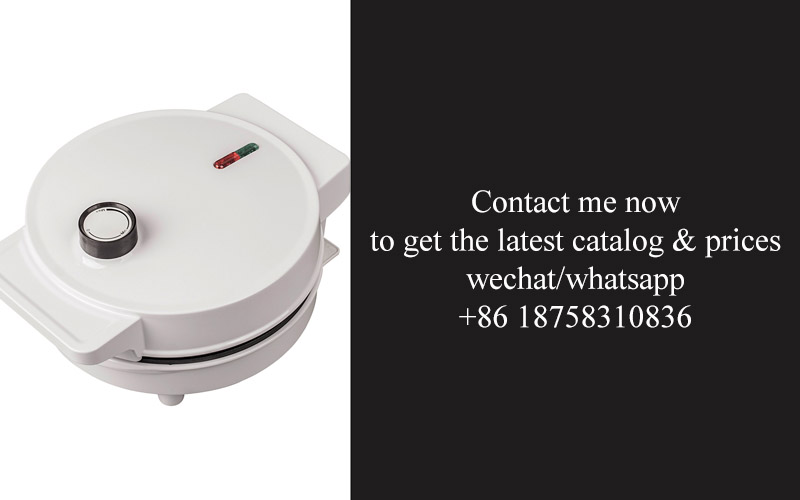
In a world where technology and convenience meet culinary excellence, the rise of air fryers has transformed the way we cook. These innovative appliances have not only found their way into homes but have also become a staple in commercial kitchens. Today, we delve into the intricacies of choosing the perfect NSF Certified Commercial Air Fryer for your business, exploring the latest market trends, innovative features, and the sustainable impact these fryers have on the industry.
In recent years, the culinary landscape has undergone a significant transformation, with air fryers emerging as a game-changer in commercial kitchens worldwide. Once a staple in home kitchens, these nifty appliances have now taken the commercial culinary world by storm. The surge in popularity can be attributed to several key factors that have made air fryers an indispensable tool for chefs and foodservice operators alike.
The convenience and efficiency that air fryers offer are unparalleled. They allow for the preparation of crispy, golden fried foods with a fraction of the oil traditionally required. This has led to a health revolution in the industry, as restaurants and cafes can now offer their patrons deliciously crispy dishes that are lower in calories and fat, aligning with the growing demand for healthier eating options.
Health consciousness has become a pivotal trend in the foodservice sector. Customers are increasingly seeking out establishments that prioritize wellness, and air fryers provide a perfect solution. By reducing the oil content in cooking, these appliances help minimize the intake of unhealthy fats, making them a favorite among health-conscious consumers. This shift in consumer preferences has been a driving force behind the adoption of air fryers in commercial settings.
Another significant factor is the versatility of air fryers. They are not just limited to frying; they can also bake, roast, and reheat food, which broadens the culinary possibilities for chefs. The ability to perform multiple functions in one appliance not only saves time and space but also reduces energy consumption, making them an environmentally friendly choice for businesses looking to operate sustainably.
Moreover, the cost-effectiveness of air fryers has been a major draw. Traditional deep fryers can be energy-intensive and require regular maintenance, which adds to the operational costs. In contrast, air fryers use less oil and consume less energy, resulting in lower costs over time. This has made them an attractive investment for restaurants that are mindful of their bottom line.
The technology behind air fryers has also advanced, offering a more precise and consistent cooking experience. Modern air fryers come equipped with adjustable temperature controls and timers, allowing for perfect results every time. This level of control is crucial in commercial kitchens where consistency is key to customer satisfaction and brand reputation.
Additionally, the compact design of air fryers has been a hit with operators. They are easy to install and can often be stacked to maximize counter space, which is a precious commodity in busy commercial kitchens. This efficient use of space is particularly beneficial in urban areas where kitchen real estate is at a premium.
As the foodservice industry continues to evolve, the demand for fast and convenient service has never been higher. Air fryers cater to this need by enabling the quick preparation of fried foods without the wait typically associated with traditional frying methods. This has been especially impactful during peak dining hours when speed is of the essence.
The integration of air fryers into commercial kitchens has also led to the development of new recipes and menu items. Chefs are experimenting with this technology to create unique dishes that appeal to a wide range of tastes. From gourmet fast food to international cuisine, the possibilities are virtually endless.
In conclusion, the rise of air fryers in commercial kitchens is a testament to the evolving culinary landscape and the growing importance of health, efficiency, and sustainability. As these appliances continue to innovate and become more integrated into the foodservice industry, they are poised to shape the future of cooking, offering both operators and consumers a win-win situation.

In the ever-evolving world of commercial kitchen appliances, one term has become synonymous with quality and safety: NSF Certification. This prestigious mark of excellence is not just a label but a guarantee that the product meets stringent standards of public health, safety, and environmental protection. Understanding what NSF Certification entails is crucial for any business looking to invest in reliable and high-performing kitchen equipment.
NSF, or the National Sanitation Foundation, is an independent, not-for-profit organization that has been setting the benchmark for product safety and public health for over 75 years. When it comes to kitchen appliances, particularly air fryers, NSF Certification signifies that the product has been rigorously tested and meets or exceeds the industry standards set by the organization.
The certification process is thorough and multifaceted. It involves a comprehensive review of the product’s design, manufacturing process, material safety, and operational performance. For an air fryer to earn the NSF Certification, it must undergo a series of tests that evaluate its ability to prevent the growth and transmission of harmful microorganisms, ensure proper food safety practices, and provide reliable performance over time.
One of the key aspects of NSF Certification is the emphasis on food safety. The organization has established criteria for air fryers that ensure they can effectively reduce the amount of fat and oil used in cooking, thereby minimizing the risk of foodborne illnesses. This is particularly important in commercial kitchens where the volume of food preparation can increase the potential for contamination.
Moreover, NSF Certification also addresses the environmental impact of the product. With a growing awareness of sustainability, the certification process includes an evaluation of the air fryer’s energy efficiency and its potential for reducing waste. This not only benefits the environment but also contributes to cost savings for businesses operating in the commercial kitchen sector.
Another critical aspect of NSF Certification is material safety. The certification process ensures that all materials used in the construction of the air fryer are non-toxic and safe for use in contact with food. This is particularly relevant in the context of air fryers, where high temperatures can release potentially harmful substances into the food being cooked.
Once a product passes all the necessary tests and evaluations, it is awarded the NSF Certification mark. This mark is recognized globally and serves as a trust signal to consumers and businesses alike. It tells them that the product has been vetted by a reputable third-party organization and has met the highest standards for quality and safety.
For businesses in the foodservice industry, choosing an NSF Certified air fryer can offer numerous benefits. It not only enhances the brand’s reputation for offering quality products but also helps in compliance with local health codes and regulations. Customers are increasingly seeking out establishments that prioritize their health and well-being, and having an NSF Certified product can be a significant competitive advantage.
The certification also encourages continuous improvement. Manufacturers of NSF Certified air fryers are motivated to innovate and maintain high standards, ensuring that their products stay at the forefront of technology and safety. This means that businesses can expect to benefit from the latest advancements in air fryer technology, which often includes features like improved heat distribution, user-friendly interfaces, and enhanced cleaning capabilities.
In summary, NSF Certification is more than just a stamp of approval—it’s a commitment to excellence. For air fryers, this means a product that not only delivers on performance but also prioritizes safety, environmental responsibility, and the health of the end-user. As the commercial kitchen industry continues to evolve, the value of NSF Certification will only grow, becoming an indispensable part of the equipment selection process for any forward-thinking business.
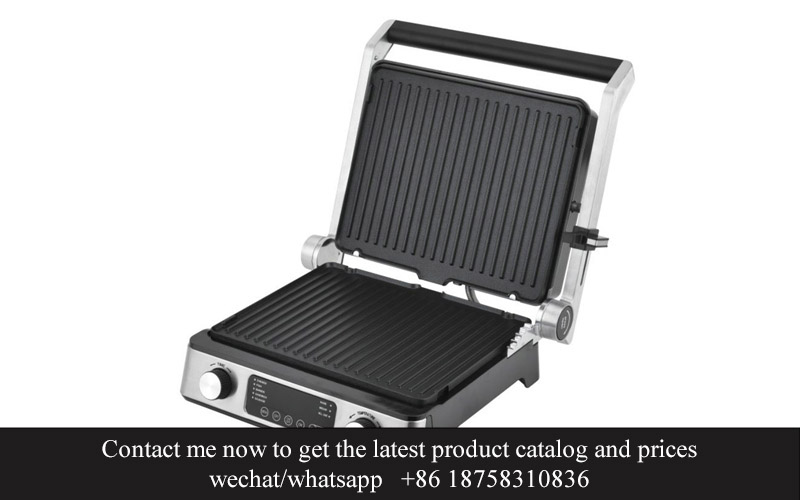
The NSF Certified Commercial Air Fryer Plant boasts a range of unique features that set it apart in the competitive commercial kitchen equipment market. From its innovative design to its cutting-edge technology, here’s a closer look at what makes this air fryer plant truly exceptional.
Its compact and space-saving design is a game-changer for busy kitchens. The air fryer plant is engineered to fit seamlessly into limited spaces, ensuring that even the smallest kitchens can enjoy the benefits of air frying without sacrificing valuable counter space.
The advanced heating element is at the heart of the air fryer plant’s efficiency. It distributes heat evenly across the cooking surface, ensuring that food is cooked to perfection without hotspots or cold spots. This feature not only improves the quality of the food but also reduces cooking times and energy consumption.
The air fryer plant is equipped with a state-of-the-art filtration system that captures excess oil and food particles, significantly reducing the need for manual cleaning. This not only saves time but also helps maintain a cleaner kitchen environment, which is crucial for health and safety standards.
One of the standout features is the programmable settings that allow chefs to tailor the cooking process to their specific needs. With adjustable temperature and time controls, the air fryer plant can handle a wide variety of recipes, from crispy French fries to tender chicken wings, with ease.
The user-friendly interface is another highlight. The control panel is intuitive, featuring clear digital displays and easy-to-navigate buttons. This makes it simple for staff to operate, even without extensive culinary training, which is particularly beneficial in high-volume kitchens where efficiency is key.
The air fryer plant is designed with safety in mind. It includes features like automatic shut-off to prevent overheating and potential fires, as well as non-slip feet to keep the unit stable during use. These safety measures provide peace of mind for kitchen staff and customers alike.
The energy efficiency of the air fryer plant is remarkable. It uses a fraction of the oil compared to traditional deep fryers, making it a more sustainable option for businesses looking to reduce their environmental footprint. Additionally, the energy-saving capabilities can lead to significant cost savings over time.
In terms of maintenance, the air fryer plant is a breeze to clean. The removable parts are easy to access and dishwasher-safe, ensuring that regular cleaning is quick and hassle-free. This feature is especially valuable in commercial settings where equipment often needs to be cleaned after each use.
The versatility of the air fryer plant is unparalleled. It can handle a variety of foods, from vegetables to meats, and even desserts, without the need for additional equipment. This versatility makes it a valuable asset for restaurants, cafes, and other foodservice operations that want to offer a diverse menu.
The air fryer plant also incorporates the latest in food safety technology. It features a hygienic design that minimizes the risk of cross-contamination, which is essential in maintaining high food safety standards.
Lastly, the durability of the air fryer plant is impressive. Made with high-quality materials, it is built to withstand the rigors of commercial use, ensuring a long lifespan and a reliable performance day in and day out.
In summary, the NSF Certified Commercial Air Fryer Plant stands out due to its space-saving design, efficient heating element, advanced filtration system, programmable settings, user-friendly interface, safety features, energy efficiency, ease of maintenance, versatility, food safety technology, and durability. These unique features make it an excellent choice for any commercial kitchen looking to enhance their menu offerings and operational efficiency.
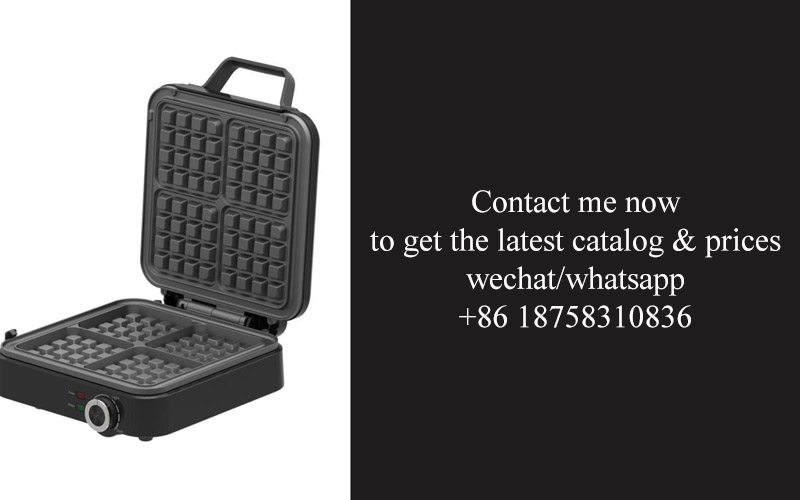
In recent years, the air fryer has transformed from a quirky kitchen gadget into a staple in commercial kitchens worldwide. This shift is not just a fad; it’s driven by a series of technological innovations that have made these appliances more efficient, versatile, and reliable. Here’s a closer look at some of the standout advancements in air fryer technology:
The Evolution of Heat DistributionOnce limited to simple basket-style fryers, modern air fryers now feature advanced heat distribution systems. These systems, often with a fan-assisted design, ensure that hot air circulates evenly around the food, resulting in a crispy outer layer and a tender interior. Some models even include adjustable heat settings, allowing chefs to tailor the cooking process to different types of ingredients.
Smart Controls and ProgramsModern air fryers are no longer just about heat and oil. Many models now come with smart controls and pre-programmed cooking settings. These settings can handle a variety of foods, from chicken to vegetables, with the touch of a button. Some units even have Wi-Fi capabilities, allowing for remote monitoring and control, which is particularly useful in busy commercial kitchens.
Energy Efficiency and SustainabilityOne of the most significant innovations in air fryer technology is its energy efficiency. These appliances use a fraction of the oil compared to traditional deep fryers, making them a more sustainable choice for businesses looking to reduce their environmental footprint. Additionally, the lower oil consumption means less waste and a healthier menu option for customers.
Customizable Baskets and AttachmentsTo cater to the diverse needs of commercial kitchens, air fryers now come with a range of customizable baskets and attachments. These can include flat grilling plates, roasting racks, and even dehydrator functions. This versatility allows chefs to prepare a wide array of dishes without the need for multiple appliances.
Safety FeaturesSafety has always been a priority in commercial kitchen equipment, and air fryers are no exception. Modern units are equipped with features like automatic shut-off, which turns the appliance off if the basket is removed or if the door is opened during operation. Some models also have cool-touch handles and exterior surfaces, reducing the risk of burns.
Enhanced Cooking PerformanceThe performance of air fryers has significantly improved with the introduction of new materials and cooking techniques. For instance, some fryers use non-stick coatings that are more durable and easier to clean than traditional coatings. Others have ceramic-coated baskets that distribute heat more evenly, leading to better cooking results.
Intelligent Temperature ControlAccurate temperature control is crucial in commercial cooking, and air fryers have made great strides in this area. Advanced thermostats ensure that the fryer maintains the desired temperature throughout the cooking process, resulting in consistent and high-quality dishes.
Integration with Other Kitchen EquipmentModern air fryers are designed to integrate seamlessly with other kitchen equipment. This means they can be used in conjunction with ovens, grills, and even refrigeration units, creating a more efficient and cohesive kitchen environment.
In conclusion, the evolution of air fryer technology has been remarkable. From improved heat distribution and smart controls to enhanced safety features and environmental benefits, these appliances are not just changing how we cook; they’re revolutionizing the commercial kitchen landscape. With continued innovation, the air fryer is poised to become an even more integral part of professional kitchens around the globe.
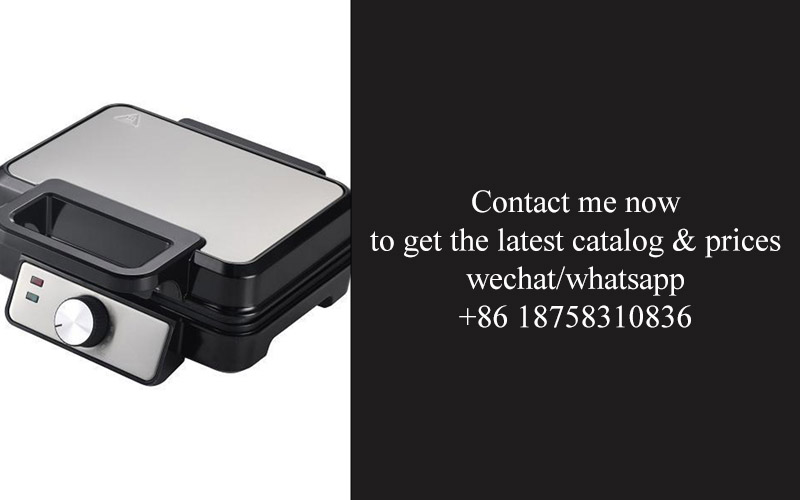
In recent years, the kitchen appliance industry has witnessed a surge in the popularity of air fryers. This shift is not just a fleeting trend but a testament to the evolving preferences and demands of consumers. Let’s delve into the current market trends and consumer demand analysis for air fryers.
The rise of health-conscious consumers has significantly impacted the market. With a growing awareness of the health risks associated with deep-frying, consumers are seeking alternatives that allow them to enjoy their favorite fried foods with a lighter footprint. Air fryers have stepped in as a perfect solution, offering a healthier frying method that uses less oil and still delivers crispy, golden results.
One notable trend is the increasing demand for convenience. Modern lifestyles are fast-paced, and consumers are looking for appliances that can simplify their cooking routines. Air fryers, with their ease of use and quick cooking times, have become a staple in many households. The compact size and versatility of these appliances make them a favorite among busy individuals who still want to enjoy delicious, homemade meals.
Smart technology integration is another trend that’s reshaping the market. Air fryers are no longer just about cooking; they are becoming smart kitchen companions. Many models now come equipped with digital displays, programmable settings, and even Bluetooth connectivity, allowing users to control their air fryers remotely through their smartphones. This level of technology not only enhances the user experience but also adds an element of fun to cooking.
The market has also seen a rise in eco-friendly air fryers. As environmental concerns grow, consumers are increasingly seeking appliances that are energy-efficient and sustainable. Air fryers, with their lower energy consumption compared to traditional fryers, are aligning with these values. Brands are responding by offering models made from recycled materials and emphasizing the sustainability of their products.
In terms of design, air fryers have evolved beyond the simple, utilitarian look. Modern consumers are looking for appliances that complement their kitchen decor, and manufacturers are delivering. The latest models come in a variety of colors and styles, from sleek stainless steel to colorful, vibrant designs that add a pop of personality to any kitchen.
When it comes to consumer demand, there’s a clear preference for air fryers that offer a wide range of cooking capabilities. Users are no longer satisfied with a one-trick pony; they want appliances that can handle everything from frying to roasting and baking. Multi-functional air fryers, which can replace multiple kitchen appliances, are becoming increasingly popular.
The market is also witnessing a trend towards personalized cooking experiences. With the ability to customize cooking times and temperatures, consumers can tailor their meals to their specific preferences. This level of control is especially appealing to those with dietary restrictions or specific health goals.
In the realm of health and wellness, there’s a growing segment of consumers who are interested in plant-based diets. Air fryers are perfectly suited for preparing crispy tofu, roasted vegetables, and other plant-based dishes, making them a favorite among vegetarians and vegans.
The market trends and consumer demand analysis for air fryers also highlight a shift towards healthier fats. While traditional frying involves using oils high in saturated fats, air fryers allow for the use of healthier alternatives like olive oil or avocado oil. This flexibility in oil choice is a significant factor in the appeal of air fryers to health-conscious consumers.
In conclusion, the market for air fryers is dynamic and evolving. Driven by health, convenience, technology, and sustainability, the demand for these appliances is on the rise. As consumers continue to seek out healthier, more efficient, and aesthetically pleasing kitchen solutions, the air fryer industry is poised to grow even further.
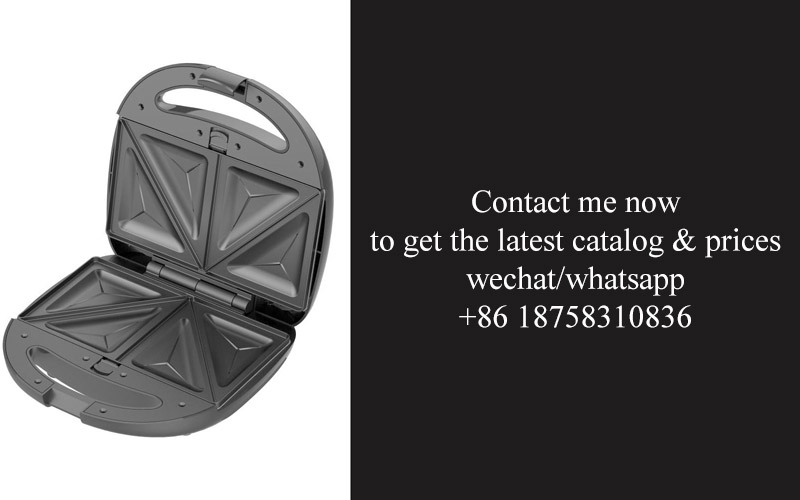
Air fryers have become a staple in many kitchens, both commercial and residential, thanks to their ability to cook food with minimal oil, offering a healthier alternative to traditional frying methods. However, as these devices gain popularity, their environmental impact and sustainability have become significant topics of discussion. Here’s a closer look at the environmental considerations surrounding air fryers.
The Energy Efficiency of Air FryersAir fryers are designed to be energy-efficient, using hot air to circulate around the food, reducing the need for large amounts of oil and, consequently, the heat required to achieve the same cooking results as deep frying. This efficiency can lead to lower energy bills and a smaller carbon footprint compared to traditional fryers that require constant oil and more heat.
The Lifecycle EmissionsWhile air fryers are generally more energy-efficient during operation, their overall environmental impact also depends on their lifecycle emissions. This includes the energy used in manufacturing, transporting, and eventually disposing of the device. The materials used in air fryers, such as plastics and metals, also have their own environmental costs, from extraction to recycling.
Recyclability and DisposalOne of the key sustainability factors of air fryers is their recyclability. Many modern air fryers are made from materials that can be recycled, such as stainless steel, aluminum, and certain plastics. However, the complexity of the device and the need for specialized recycling processes can pose challenges. Proper disposal and recycling are crucial to minimize the environmental impact.
The Impact of Oil UsageDespite the fact that air fryers use less oil than traditional frying methods, the type and source of the oil are important considerations. Vegetable oils, commonly used in air fryers, are generally considered more sustainable than animal fats. However, the sustainability of these oils can vary greatly depending on the source, with some oils requiring more land and water resources to produce.
The Importance of Local ProductionThe distance that air fryers travel from manufacturing to the consumer can also affect their environmental impact. Local production can reduce transportation emissions and support local economies. By choosing air fryers made and distributed locally, consumers can contribute to a more sustainable supply chain.
The Role of Consumer BehaviorConsumer behavior plays a significant role in the environmental impact of air fryers. Using the device responsibly, such as by not overfilling it and only cooking what is needed, can help conserve energy and reduce waste. Additionally, the frequency of use and the longevity of the appliance can also influence its environmental footprint.
The Impact of Warranties and RepairsThe availability of warranties and the ease of repairs can also impact the sustainability of air fryers. Appliances with longer warranties and simpler repair processes encourage consumers to keep their devices in use for a longer period, reducing the need for frequent replacements and the associated environmental impact.
The Future of Air Fryer TechnologyAs technology advances, the environmental impact of air fryers is likely to decrease. Innovations such as energy-saving modes, longer-lasting components, and improved recycling processes are all potential ways to make air fryers more sustainable. Companies that invest in research and development to reduce their products’ environmental impact are setting a precedent for the industry.
The Importance of TransparencyConsumers are increasingly looking for transparency in the environmental impact of the products they purchase. Companies that provide detailed information about the sustainability of their air fryers, including the materials used, energy efficiency, and recycling options, are more likely to attract environmentally conscious consumers.
In conclusion, the environmental impact of air fryers is a multifaceted issue that involves not only the efficiency of the device itself but also the entire lifecycle of the product. By considering factors such as energy efficiency, materials, and consumer behavior, we can work towards a more sustainable future for air fryers and the broader foodservice industry.

In the bustling world of commercial kitchens, the adoption of air fryers has surged, offering a healthier alternative to traditional frying methods. Let’s delve into some notable case studies that showcase successful implementations of air fryer technology in various industries.
In a trendy fast-food chain, the introduction of an NSF certified commercial air fryer plant transformed their menu. The compact fryer, designed for high-volume cooking, allowed the restaurant to offer crispy, golden fries without the guilt. Customers flocked to the establishment, impressed by the crispy texture and reduced oil content, boosting sales and attracting a health-conscious clientele.
A gourmet restaurant known for its rich, indulgent dishes embraced air fryer technology to create lighter, yet satisfying appetizers. By using an NSF certified air fryer plant, they were able to preserve the natural flavors of ingredients while achieving the desired crunch. The innovative approach to cooking not only delighted diners but also earned the restaurant accolades for its culinary creativity.
A sports bar, traditionally reliant on deep-fried snacks, made a switch to an NSF certified commercial air fryer plant. The transition was seamless, as the fryer’s ability to cook a variety of foods at high speeds without compromising quality was a game-changer. The bar’s patrons appreciated the healthier options, and the staff enjoyed the ease of use and maintenance of the new equipment.
A school cafeteria, aiming to provide nutritious meals to students, turned to an NSF certified air fryer plant. The fryer’s ability to cook a wide range of foods, from chicken strips to onion rings, helped the cafeteria offer a diverse menu that was both appealing and health-conscious. The school administration was pleased with the energy savings and the positive feedback from students.
A healthcare facility, focusing on patient nutrition, integrated an NSF certified air fryer plant into their meal service. The fryer’s ability to cook with minimal oil was a perfect fit for their goal of providing heart-healthy options. Patients and staff alike praised the delicious taste and the fact that the fryer was a part of their commitment to wellness.
A food truck operator, known for their gourmet street food, invested in an NSF certified commercial air fryer plant to expand their menu. The fryer’s portability and efficiency allowed the operator to offer a variety of fried foods without the need for a large, energy-consuming fryer. The food truck’s popularity soared, and the operator attributed much of their success to the air fryer’s versatility.
A catering service, catering to events of all sizes, found an NSF certified air fryer plant to be an invaluable asset. The fryer’s ability to handle large batches of food without sacrificing quality was crucial for their business. Clients were delighted with the fresh, crispy dishes, and the catering service gained a reputation for their commitment to health and flavor.
In each of these case studies, the NSF certified commercial air fryer plant played a pivotal role in enhancing the quality of food, reducing oil usage, and improving the overall sustainability of the operations. The technology has proven to be a versatile and efficient solution for businesses looking to offer healthier options while maintaining high standards of food quality.

In today’s rapidly evolving culinary landscape, the future of the air fryer industry holds a blend of technological advancements, shifting consumer preferences, and a growing emphasis on sustainability. Here are some insights into the prospects and predictions for the industry:
The rise of health-conscious consumers has propelled the demand for air fryers, as they offer a healthier alternative to traditional deep-frying methods. As this trend continues, we can expect to see more air fryer models that cater to those seeking lower fat, calorie, and oil content options.
Technological innovations are set to transform the air fryer landscape. Smart air fryers with integrated apps and remote control capabilities are becoming more common, allowing users to monitor and adjust cooking settings from their smartphones. The integration of AI and IoT is also on the horizon, promising even more personalized and efficient cooking experiences.
Sustainability is a critical factor in the future of air fryers. Manufacturers are increasingly focusing on using recyclable materials, energy-efficient designs, and eco-friendly production processes. As awareness grows, we might see a rise in air fryers that are certified as green products, appealing to environmentally conscious consumers.
The commercial sector is expected to embrace air fryers even more, as they offer a solution for reducing kitchen space and energy consumption. Fast-food chains, restaurants, and institutional kitchens are looking for ways to cut costs and improve their offerings. This shift could lead to the development of commercial-grade air fryers with increased capacity and durability.
Globalization will play a significant role in the future of air fryers. As they gain popularity in different regions, we’ll see a variety of cultural influences shaping the design and functionality of these appliances. For instance, the demand for air fryers with specific features that cater to local cuisines is likely to grow.
The industry will also witness the development of air fryers that are not just cooking appliances but multi-functional kitchen gadgets. Combining air frying with other cooking methods like roasting or baking could become a norm, offering chefs and home cooks more versatility in their kitchen.
Healthcare trends are expected to have a profound impact on the air fryer market. With the rise of chronic diseases linked to poor diet, there’s a growing interest in kitchen appliances that can help prepare healthier meals. This could lead to air fryers being integrated into wellness programs and health initiatives.
Regulatory changes and certifications are shaping the future of the air fryer industry. As governments and consumer groups push for stricter safety and health standards, manufacturers will have to comply with these new regulations. This could result in air fryers becoming more standardized, with consistent quality and safety across the board.
The rise of online shopping and the preference for home delivery services have also influenced the air fryer market. Consumers are increasingly looking for appliances that are easy to store and transport, as well as those that can quickly prepare meals after delivery. This demand is likely to drive the development of compact and portable air fryers.
Lastly, the industry’s future is tied to the ability of companies to innovate and adapt. Those who can pivot their products to meet changing consumer needs and environmental concerns will likely find success. The air fryer market is poised for growth, and those who stay ahead of the curve will be well-positioned to capitalize on the opportunities that lie ahead.
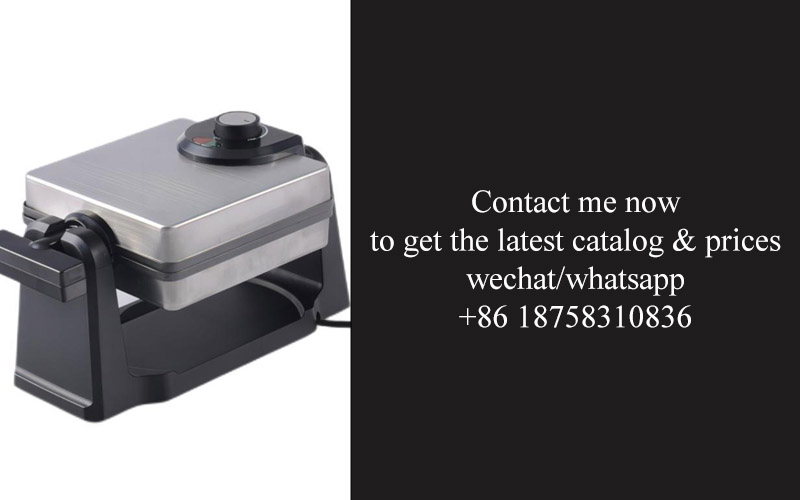
The NSF Certified Commercial Air Fryer Plant distinguishes itself in a crowded market through a combination of cutting-edge features, rigorous quality standards, and a focus on innovation. Here’s a closer look at what sets it apart:
In terms of design, the NSF Certified Commercial Air Fryer Plant boasts an ergonomic layout that maximizes efficiency. The fryers are designed with user-friendly controls, allowing operators to adjust cooking times and temperatures with ease. This not only simplifies the cooking process but also enhances productivity in busy kitchens.
The technology employed in the NSF Certified Air Fryer Plant is a game-changer. With its advanced heating elements and fan-assisted air circulation, these fryers achieve an even cooking temperature throughout, resulting in crisp, golden-brown foods with minimal oil. This technological advancement addresses one of the biggest concerns associated with traditional deep-frying—reduced oil usage, which is a significant health benefit.
One of the standout features of the NSF Certified Commercial Air Fryer Plant is its energy efficiency. These fryers are designed to use less electricity than their conventional counterparts, which not only saves money on energy bills but also reduces the plant’s carbon footprint. The energy-saving aspect is a crucial factor for businesses looking to operate sustainably and responsibly.
Safety is another area where the NSF Certified Air Fryer Plant excels. The fryers are equipped with multiple safety features, including automatic shut-off systems that activate if they detect overheating or unauthorized operation. This not only protects the equipment but also ensures the safety of staff and customers.
The plant’s commitment to quality is evident in the materials used and the construction of the fryers. Made from durable stainless steel, these units are built to last, even in the harsh conditions of a commercial kitchen. The stainless steel also makes them easy to clean and maintain, further enhancing their longevity.
Customization is a key aspect that the NSF Certified Commercial Air Fryer Plant offers. Understanding that different businesses have unique needs, the plant provides a range of models and configurations. Whether it’s a countertop model for a small café or a floor-standing unit for a bustling restaurant, the plant can tailor the fryer to fit the space and requirements.
Innovation doesn’t stop at the fryers themselves. The NSF Certified Air Fryer Plant also offers accessories and attachments that enhance the functionality of the fryers. From baskets to filters, these additions are designed to make cooking more efficient and the cleaning process easier.
The plant’s customer service is another reason it stands out. With a dedicated team of experts, the plant provides comprehensive support, from installation to maintenance and troubleshooting. This level of customer care ensures that businesses can rely on their fryers to perform at their best, year after year.
The NSF Certification itself is a testament to the plant’s commitment to excellence. This certification is highly respected in the industry and guarantees that the fryers meet stringent safety, health, and environmental standards. It’s a mark of quality that reassures customers and sets the plant apart from competitors.
Finally, the plant’s focus on innovation extends to its approach to sustainability. By designing fryers that use less oil and consume less energy, the plant is contributing to a greener future. This eco-friendly stance resonates with environmentally conscious consumers and businesses alike, further solidifying the plant’s position as a leader in the commercial air fryer market.

When it comes to selecting the perfect NSF Certified Commercial Air Fryer for your business, there are several key factors to consider. From capacity and efficiency to features and maintenance, making an informed decision is crucial for your establishment’s success. Here’s how to navigate the options and find the right air fryer for your needs.
Capacity is king when it comes to commercial appliances, and air fryers are no exception. Consider the size of your kitchen and the volume of food you’ll be preparing. Smaller establishments may benefit from a compact, countertop model, while larger kitchens might require a robust, floor-standing unit. Ensure the capacity of the air fryer aligns with your daily cooking demands to avoid frequent batches and potential customer wait times.
Energy efficiency is another critical aspect. With rising energy costs, investing in an air fryer that consumes less power can lead to significant savings over time. Look for models with advanced heating elements and efficient insulation that maintain optimal cooking temperatures while minimizing energy use. The right balance between efficiency and capacity will help you manage your energy bills and reduce your carbon footprint.
Ease of use is a must for any commercial kitchen. Look for air fryers with intuitive controls and clear, easy-to-read displays. Features like pre-programmed settings, adjustable temperature controls, and timers can streamline your cooking process and ensure consistent results. A user-friendly interface can also reduce training time for new staff, allowing them to get up to speed quickly.
The quality of the construction and materials is vital for a commercial air fryer. Durable components, such as stainless steel construction and heavy-duty components, will withstand the rigors of a busy kitchen environment. A sturdy build means the appliance will last longer, reducing the need for frequent repairs or replacements.
When choosing an NSF Certified Commercial Air Fryer, consider the following points:
Check for certifications and standards compliance. The NSF certification ensures that the air fryer meets strict safety and hygiene requirements, giving you peace of mind for your customers and employees.
Evaluate the cooking area. Ensure it is spacious enough to accommodate your typical portion sizes and that it is designed for even cooking to prevent hotspots.
Look for features that enhance cooking performance, such as adjustable fan speeds, which can help achieve different cooking temperatures and speeds.
Consider the type of food you’ll be cooking most frequently. Some air fryers are better suited for certain types of food, so choose one that aligns with your menu.
Check for accessories or add-ons that can expand the capabilities of the air fryer. Items like baskets, separators, and drip trays can make cooking and cleaning more efficient.
Pay attention to the noise level. A quieter air fryer can create a more pleasant working environment for your staff and won’t disturb your customers.
Consider the warranty and after-sales service. A reliable manufacturer will stand behind their product, offering a comprehensive warranty and responsive customer support.
Remember, the right air fryer for your business will not only enhance your menu offerings but also contribute to a more efficient and profitable kitchen operation. Take the time to research and compare different models, and don’t hesitate to ask for demonstrations or trials if possible. By choosing the right NSF Certified Commercial Air Fryer, you’ll be investing in the success of your business for years to come.